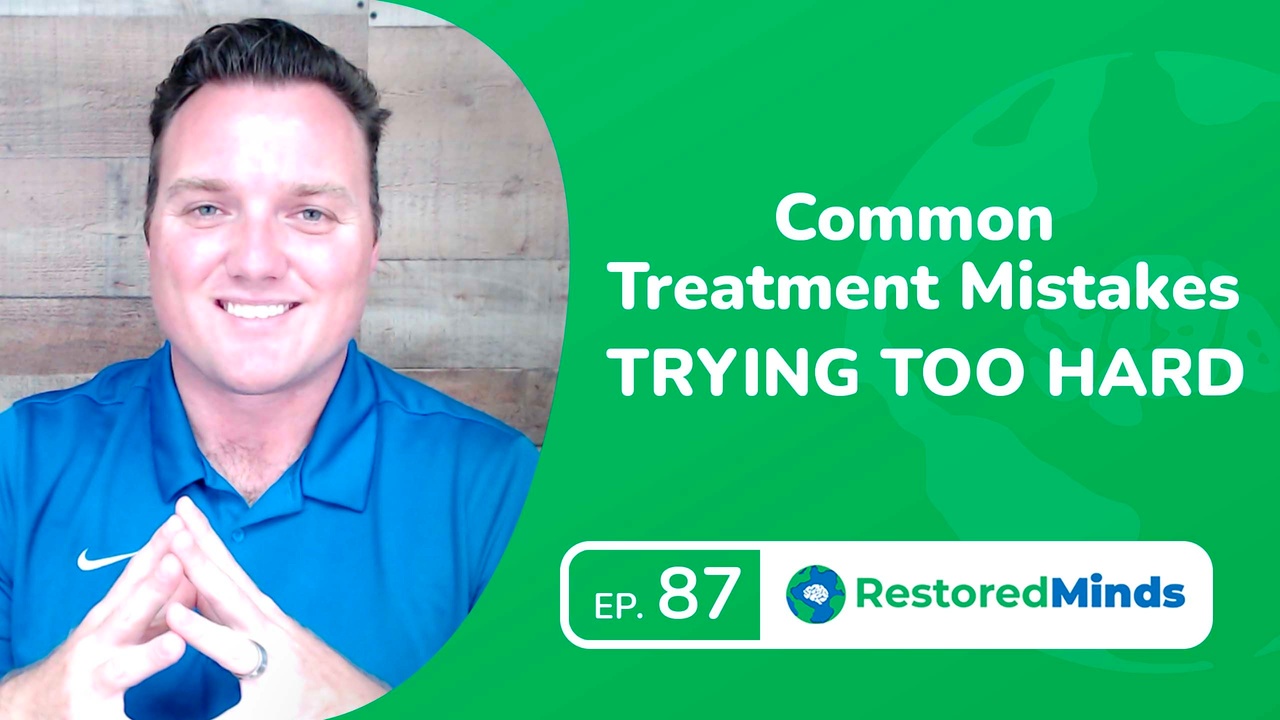Common Treatment Mistakes - Trying TOO HARD
Apr 22, 2021
Common Mistakes in OCD and Anxiety Treatment: Trying Too Hard
The Trap of Trying Harder
From a young age, we're conditioned to believe that the harder we work, the better the outcome. This principle applies to many areas of life, like academics and career growth. However, when it comes to treating OCD and anxiety, this principle fails. As Matt explains in the video, trying too hard can be a significant pitfall in your recovery journey.
The Effort-Result Misconception
Most of us grow up with the mentality that effort equals result. This belief is deeply ingrained in our minds and often translates into our approach to mental health. People with OCD and anxiety might think that constantly trying to eliminate their intrusive thoughts will make these thoughts go away. However, the opposite is usually true.
The Paradox of OCD and Anxiety Recovery
Matt illustrates how the more effort we put into eliminating thoughts or feelings, the worse they can get. The paradox is that attempting to control or get rid of anxiety-inducing thoughts and feelings actually fuels the anxiety, creating a vicious cycle.
Examples and Real-Life Scenarios
Consider someone who has obsessive thoughts about their faith, worrying constantly about their salvation. Initially, they may talk to a spiritual counselor and perform religious rituals to seek reassurance. Over time, these behaviors only serve to confirm the importance of the thought, which keeps the anxiety loop active.
Common Compulsions in OCD
People often engage in a series of compulsive behaviors to manage their anxiety. These may include:
-
Praying repeatedly
-
Seeking constant reassurance
-
Reading the same articles or scriptures again and again
-
Avoiding places or activities that trigger the fear
Such behaviors only reinforce the OCD loop, perpetuating the cycle of anxiety.
Misplaced Effort: A Common Issue
As Matt points out, many people aren't stuck because they're not trying hard enough; they’re stuck because their efforts are misplaced. Misplacing your energy into trying to control or get rid of your thoughts and emotions will never lead to recovery. Instead, it often leads to frustration, hopelessness, and even depression.
How to Shift Your Perspective
The key to overcoming this pitfall is to change your approach. Stop trying harder in ways that aren’t working and start to shift your belief structure. This is something we focus on extensively at Restored Minds, helping people understand their issues from a new lens.
Behavioral Modification Tools
Aligning yourself with the right behaviors and tools can break you out of this loop. Instead of energizing your anxiety, these tools help you see the issue from a clearer perspective and reduce your fight-or-flight responses.
Conclusion
Trying too hard is a common mistake in OCD and anxiety treatment. By understanding that your efforts may be misplaced, you can begin to take the necessary steps to readjust your approach and find effective strategies for recovery.


